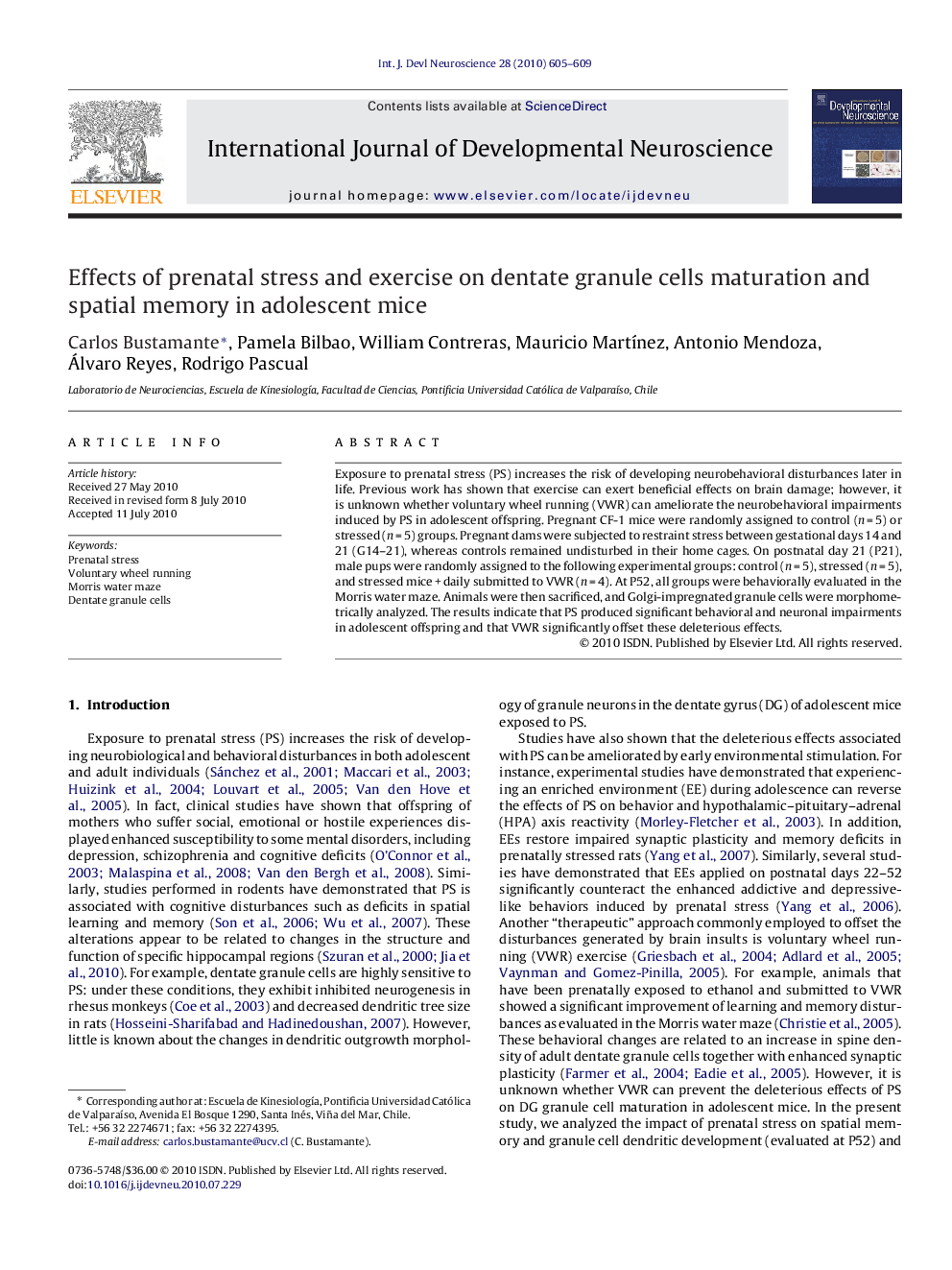| Article ID | Journal | Published Year | Pages | File Type |
|---|---|---|---|---|
| 2786738 | International Journal of Developmental Neuroscience | 2010 | 5 Pages |
Exposure to prenatal stress (PS) increases the risk of developing neurobehavioral disturbances later in life. Previous work has shown that exercise can exert beneficial effects on brain damage; however, it is unknown whether voluntary wheel running (VWR) can ameliorate the neurobehavioral impairments induced by PS in adolescent offspring. Pregnant CF-1 mice were randomly assigned to control (n = 5) or stressed (n = 5) groups. Pregnant dams were subjected to restraint stress between gestational days 14 and 21 (G14–21), whereas controls remained undisturbed in their home cages. On postnatal day 21 (P21), male pups were randomly assigned to the following experimental groups: control (n = 5), stressed (n = 5), and stressed mice + daily submitted to VWR (n = 4). At P52, all groups were behaviorally evaluated in the Morris water maze. Animals were then sacrificed, and Golgi-impregnated granule cells were morphometrically analyzed. The results indicate that PS produced significant behavioral and neuronal impairments in adolescent offspring and that VWR significantly offset these deleterious effects.
Research highlights▶ Prenatal stress alters dendritic development and maturation of dentate granule cells in adolescent and adult rodents. ▶ These neuronal alterations are related with spatial and memory deficits. ▶ Voluntary wheel running exerts a significant improvement of the above mentioned neurobehavioral impairments in prenatally stressed mice.
